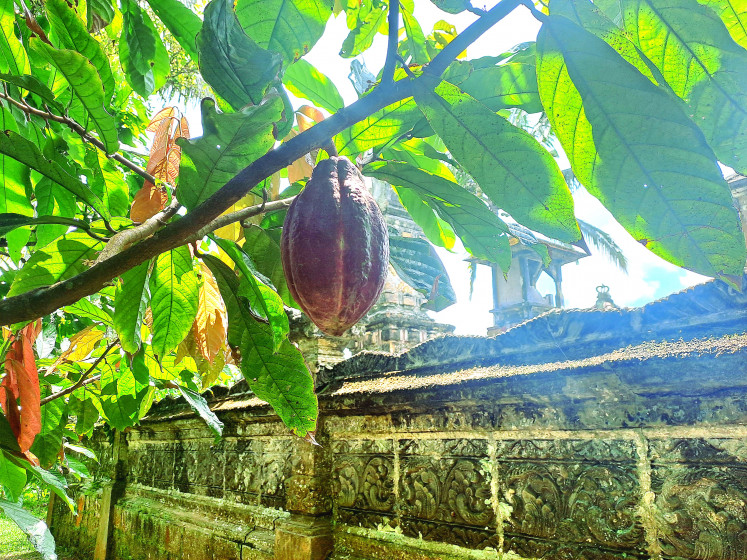Popular Reads
Top Results
Can't find what you're looking for?
View all search resultsPopular Reads
Top Results
Can't find what you're looking for?
View all search resultsMK rejects Tajul Muluk's request for a judicial review
The Constitutional Court rejected on Thursday a request submitted by five plaintiffs, including Tajul Muluk, a Shia leader from Sampang, Madura, who is now serving a four-year imprisonment for blasphemy, for a judicial review of two controversial blasphemy articles
Change text size
Gift Premium Articles
to Anyone
T
he Constitutional Court rejected on Thursday a request submitted by five plaintiffs, including Tajul Muluk, a Shia leader from Sampang, Madura, who is now serving a four-year imprisonment for blasphemy, for a judicial review of two controversial blasphemy articles. The articles are often used to prosecute members of minority groups.
The plaintiffs' lawyers argued that Article 4 of the 1965 Blasphemy Law and Article 156a of the Criminal Code were open to multiple interpretations. They further claimed that Tajul's case demonstrated how laws on blasphemy had been abused.
Tajul was accused of telling his followers that the Koran was not original scripture and the true version of the Holy Book would be revealed to Imam Mahdi.
Another plaintiff, Sebastian Joe, is now serving a five-year jail sentence for blasphemy after the Ciamis chapter of hardline group the Islam Defenders Front (FPI) in West Java reported him last year for his Facebook status, which was considered insulting to Islam.
The judge panel concluded that the request had no legal basis because instead of an issue of constitutionality, it was 'a matter of how to apply the law, the authority for which belongs to the general courts'.
The panel also disagreed with the plaintiffs who said the articles failed to ensure legal certainty and had no clear definition of the phrases 'in public', 'hostility', 'misuse" or 'desecration'.
'Article 156a aims to maintain public order and prevent hate speech,' Justice Patrialis Akbar said.
'Therefore, it is the judges in general courts, who decide on the characteristics of each case, that have the authority to determine [whether someone commits hate speech],' he added. (ebf)










